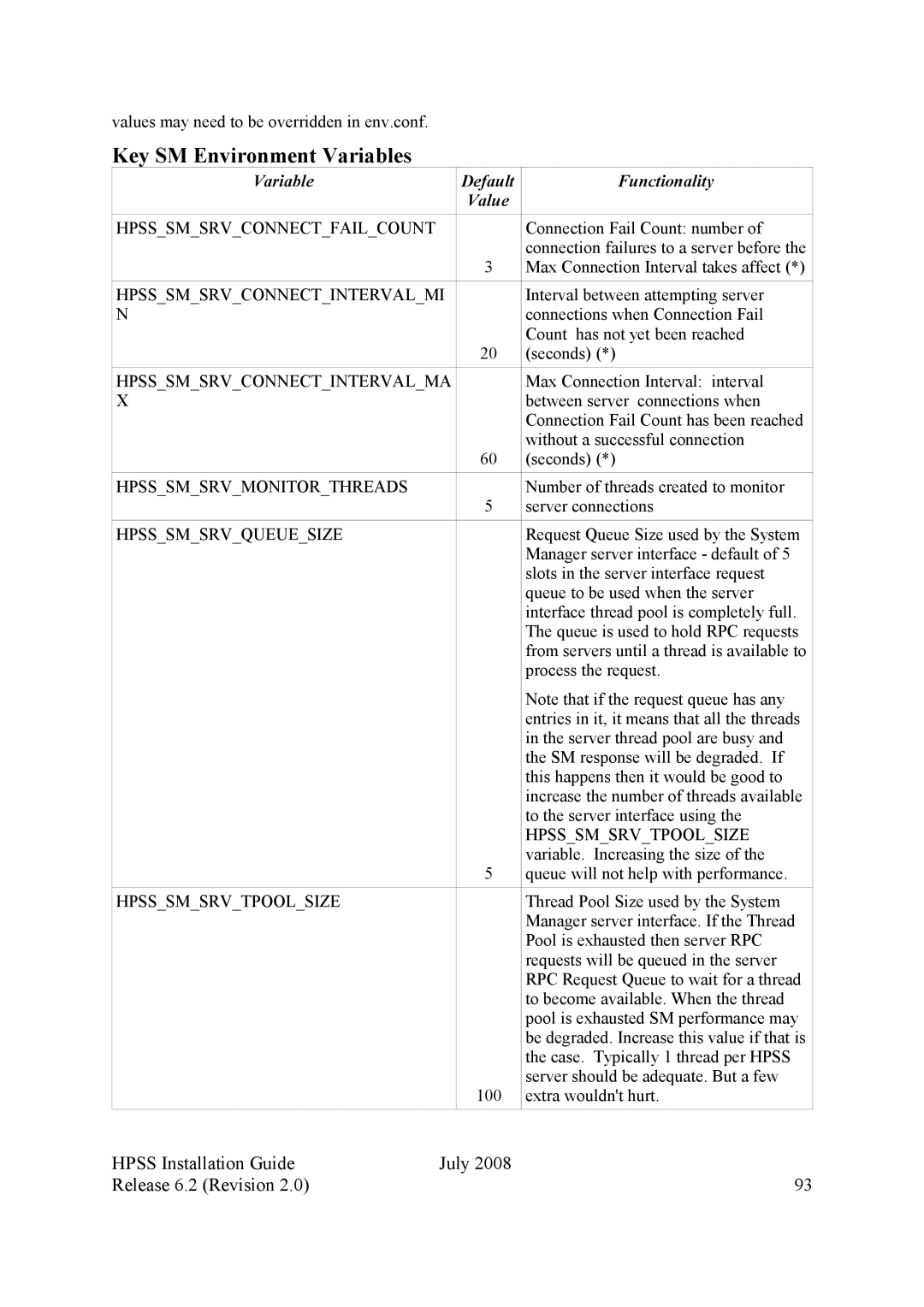values may need to be overridden in env.conf.
Key SM Environment Variables
Variable | Default | Functionality |
| Value |
|
|
|
|
HPSS_SM_SRV_CONNECT_FAIL_COUNT |
| Connection Fail Count: number of |
|
| connection failures to a server before the |
| 3 | Max Connection Interval takes affect (*) |
|
|
|
HPSS_SM_SRV_CONNECT_INTERVAL_MI |
| Interval between attempting server |
N |
| connections when Connection Fail |
|
| Count has not yet been reached |
| 20 | (seconds) (*) |
|
|
|
HPSS_SM_SRV_CONNECT_INTERVAL_MA |
| Max Connection Interval: interval |
X |
| between server connections when |
|
| Connection Fail Count has been reached |
|
| without a successful connection |
| 60 | (seconds) (*) |
HPSS_SM_SRV_MONITOR_THREADS |
| Number of threads created to monitor |
| 5 | server connections |
HPSS_SM_SRV_QUEUE_SIZE |
| Request Queue Size used by the System |
|
| Manager server interface - default of 5 |
|
| slots in the server interface request |
|
| queue to be used when the server |
|
| interface thread pool is completely full. |
|
| The queue is used to hold RPC requests |
|
| from servers until a thread is available to |
|
| process the request. |
|
| Note that if the request queue has any |
|
| entries in it, it means that all the threads |
|
| in the server thread pool are busy and |
|
| the SM response will be degraded. If |
|
| this happens then it would be good to |
|
| increase the number of threads available |
|
| to the server interface using the |
|
| HPSS_SM_SRV_TPOOL_SIZE |
|
| variable. Increasing the size of the |
| 5 | queue will not help with performance. |
HPSS_SM_SRV_TPOOL_SIZE |
| Thread Pool Size used by the System |
|
| Manager server interface. If the Thread |
|
| Pool is exhausted then server RPC |
|
| requests will be queued in the server |
|
| RPC Request Queue to wait for a thread |
|
| to become available. When the thread |
|
| pool is exhausted SM performance may |
|
| be degraded. Increase this value if that is |
|
| the case. Typically 1 thread per HPSS |
|
| server should be adequate. But a few |
| 100 | extra wouldn't hurt. |
HPSS Installation Guide | July 2008 |
Release 6.2 (Revision 2.0) | 93 |
